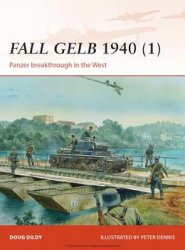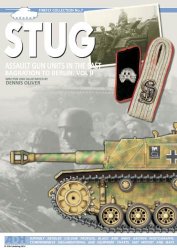The Soviets and their East European Communist allies understood that they could win over the local populations only by paying attention to their national goals and needs. Similarly, in their foreign policy, the Soviets tried to reinvigorate ideas ofSlavic brotherhood by reviving nineteenth-century pan-Slavic ideas. The Poles were as suspicious of Stalin’s pan-Slavism in the postwar period as they had been of the tsarist original in the late nineteenth century. But among the Czechs, Slovaks, Bulgarians, and Yugoslavs, the ideas about a greater Slavic community of peoples, led by the great Slavic Russian brother to the east, found considerable resonance as the Red Army marched into Eastern Europe.
In the mix of slogans involving Slavic unity and anti-Fascist democratic revolutions, the Soviets encouraged Communists to pursue their own "national roads" to Communism, meaning they should adjust their demands to local conditions and share political power with other "patriotic" socialist and democratic parties. This program served Soviet aims in two ways: first, it contributed to good working relations with Western Allied governments, and, second, it helped build a popular following for what were - in the prewar period - very small and very insignificant Communist Parties. National roads meant that the individual Communist Parties could unambiguously bear the shields of patriotic causes, while vying with populist and social democratic parties in claiming to represent the best interests of the "nation." In this spirit, Stalin supported the plans of the Czechoslovak and Polish governments to expel Germans from their countries.239 Communist Party promotion of ethno-nationalist causes, at least when they did not damage Soviet interests, were generally welcomed by the Kremlin.
Part of the rationale for supporting patriotic causes was to win the support of the mass of voters in electoral contests. The Soviets took these elections deadly seriously, in some cases more seriously than the East European Communists themselves. As a consequence, they were bitterly disappointed with the results. In Austria and in Hungary in November 1945, and in the eastern zone of Germany and Berlin in the fall of 1946, Soviet-sponsored Communist Parties suffered unexpected setbacks. Even with all the pressure applied by the Polish Communist forces against Stanislaw Mikolajczyk and the PSL (Polish Peasant Party) in the crucial nationwide referendum of June 1946, including outright falsification of the returns, the Poles managed to register their displeasure with the Communists by voting "no" on the symbolically crucial first question. The Czechoslovak party did well in the elections of May 1946, garnering 38 percent of the vote. But its popularity noticeably receded thereafter, which no doubt played a role in the planning of the February 1948 coup. It is unlikely that the Soviets would have allowed Communists to be voted out of positions of power in Eastern Europe. In that sense, the antiFascist democratic revolution, as understood by many non-Communists, would have been hard-pressed to succeed.
The electoral defeats of the Communists were in part the result of the Soviets’ own actions. There was considerable receptivity to socialism and even to Soviet liberation and occupation at the end of the war. But the combination of the miscreant behavior of the Red Army soldiers in foreign lands and the rapaciousness of Soviet reparations officials responsible for dismantling factories and seizing agricultural products for the army and home front led to anger and resentment on the part of local populations. In Hungary and Germany, the liberators were seen as thieves and rapists. In Poland, Slovakia, Romania, and Germany, the Soviets dismantled factories as reparations and seized grain from farmers. Even in Bulgaria and Yugoslavia, the behavior of Soviet troops created "great disillusionment” among the common folk, who earlier had genuinely admired, even idolized, Soviet Red Army soldiers.240
Electoral "campaigns” aside, everywhere in Eastern Europe Communists seized control of the interior ministries and their police functions, especially those having to do with secret police and armed internal police units. Working in tandem and sometimes at the behest of the Soviet NKVD (after 1946 MVD) and NKGB (after 1946 MGB and later still KGB), domestic secret police pursued alleged counterrevolutionaries and Fascists, and arrested, tortured, exiled, and sometimes executed democrats and socialists who opposed growing Soviet influence.241 If in 1945 and 1946 one could not talk about a Communist seizure of power in what were formally parliamentary democracies, Communists used their control over the secret police apparatus to make sure that there would be no serious internal opposition to their policies. In this sense, the timing of the Great October Revolution was reversed; in postwar Eastern Europe, the civil war, where it existed, was fought and won by the secret police and its Soviet backers before - rather than after - the Communists actually seized power.




 World History
World History









